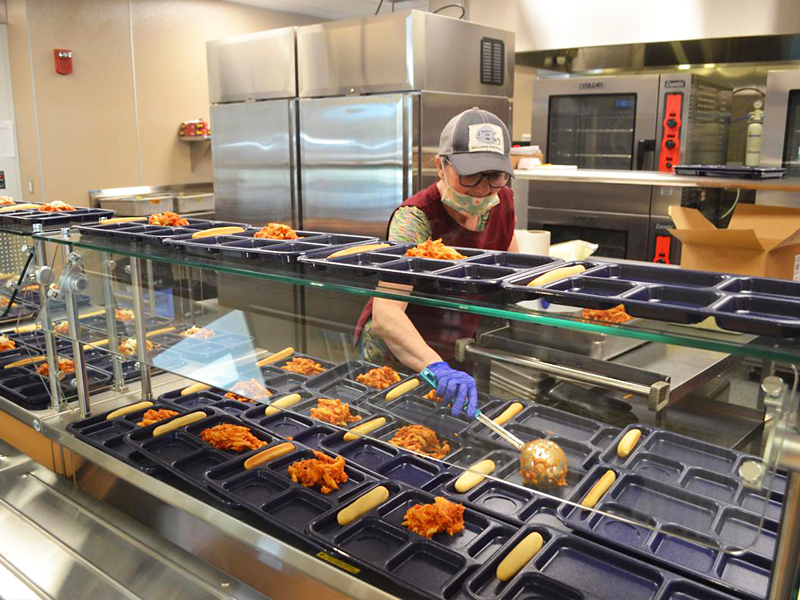Schools now have more time to apply for funding for sustainability projects through the Department of Ecology’s “Waste Not Washington” School Award program. Ecology has extended the application deadline to Dec. 17, 2022. The program offers awards up to $5,000 to schools, non-profits, and local jurisdictions to help pay for projects intended to reduce waste, increase recycling, or provide students a waste reduction curriculum. The program can help pay for school compliance with waste reduction laws that are effective starting in January 2022. General waste reduction projects are also eligible for funding.
Schools may need additional funding starting in 2022 when the Single-Use Serviceware Law takes effect. The law prohibits restaurants and other food providers – including school and institutional cafeterias – from automatically distributing single-use serviceware and bundled utensils.
Laurie Davies oversees Ecology’s Solid Waste Management program and is a former school board member who encourages schools to take advantage of this funding opportunity. “Investing now in durable trays, serviceware, and other food service products – and wash stations to clean them – is a smart idea as these laws become effective over the next few years.”
New laws effect single-use food service items in schools
Ecology will implement the Single-Use Serviceware Law on Jan. 1, 2022. The law prohibits food providers from automatically including single-use food serviceware such as straws, utensils, cold drink lids, and condiment packets with food orders. The law also prohibits handing out bundled packages of multiple utensils. The law requires customers to request these items, indicate they want an item when asked, or self-select items at a sanitary self-serve station.
In June 2024, Washington’s ban on expanded polystyrene takes effect and distribution of the foam material is prohibited across the state. Schools and other food-service providers will no longer be able to use or distribute expanded polystyrene in their cafeterias, to-go operations, or elsewhere. Examples of lunchroom items made from expanded polystyrene include trays, cups, bowls, plates, and to-go containers.
Addressing the plastic problem
Plastic pollution is pervasive in Washington, and poses a threat to human health, wildlife, and the environment. Many plastic products are also difficult to recycle. The Washington Legislature has focused on addressing plastics since 2019 when it passed a law banning single-use plastic bags and funded a plastics study.
The serviceware law and the expanded polystyrene ban were part of a package of new legislation passed in 2021 to reduce the use of single-use plastics and increase recycled content in bottles and trash bags.
Visit Ecology’s website for more information.


